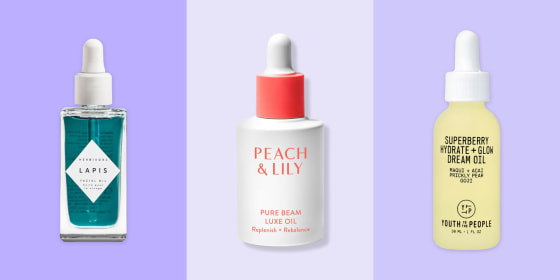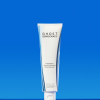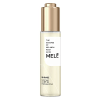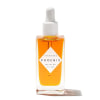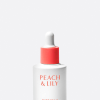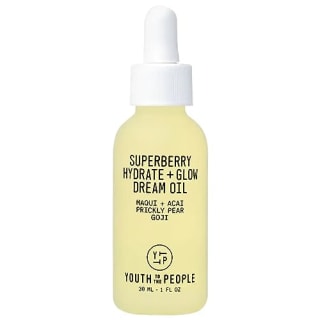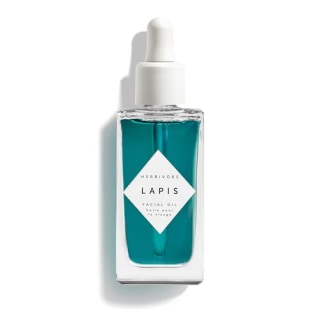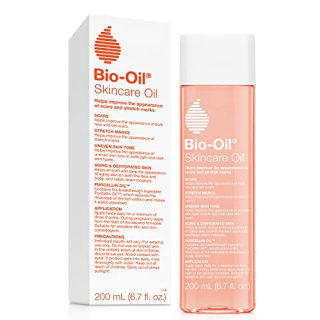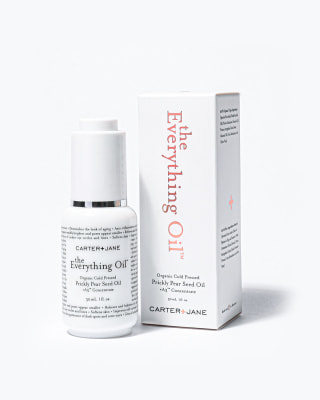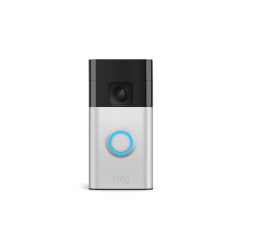“Face oils are tricky,” says Kiran Mian, D.O, a board-certified dermatologist at Hudson Dermatology and Laser Surgery in New York City. One size rarely fits all in skin care and face oils are particularly nuanced.
At their most basic, face oils are hydrators with both emollient and occlusive properties (meaning they help repair the skin barrier and lock in moisture), says Hadley King, M.D., board-certified dermatologist in New York City. But they can do so much more than moisturize. “Face oils definitely have a place with all different types of skin because they have a lot of different benefits,” says Navin Arora, M.D., a board-certified dermatologist and founder of Borealis Dermatology in New York, including treating acne and redness. Anti-inflammatory and antioxidant properties can also deliver an added boost to your skin care routine.
So, how do you find the right face oil for your skin type? Below, I rounded up everything you need to know when shopping for one.
How I picked the best face oils
Finding the optimal face oil for you starts with identifying your skin type and the issue you want to target, such as redness or acne. There’s also likely to be some trial and error involved, says Mian.
There are, however, some general guidelines to keep in mind when vetting oils, according to our experts. Here’s what they say to look for:
- Skin barrier supporting ingredients. Certain face oils can mimic the natural skin barrier, helping strengthen the skin and resolve issues like dryness and redness, says Arora. Look for formulas with essential fatty acids and ceramides, both of which are emollients that can help repair damage.
- Antioxidant boosters. Many botanical oils, like jojoba and rosehip oil, are naturally rich in antioxidants and have anti-inflammatory, antimicrobial properties, says King. Other formulas have added antioxidants, like vitamin C, which can help repair cell damage and brighten skin. In fact, face oils can be the ideal delivery vehicle for active ingredients since they penetrate skin so well, says Arora.
- Comedogenic rating. “Some oils are more prone to clog your pores than others,” says Mian. Especially if you have acne-prone skin, it’s important to choose an oil with a low comedogenic rating (it runs on a scale of 0 to 5), meaning it is less likely to block pores. Low comedogenic oils include: grape seed oil (1), jojoba oil (2), hemp seed oil (0) and rosehip oil (1). “Sesame seed oil, flaxseed oil, almond oil, coconut oil and avocado oil are more prone to cause a blockage so I would have my acne patients avoid those,” says Mian.
Want more from NBC Select? Sign up for our newsletter, The Selection, and shop smarter.
The best face oils in 2026
I asked board-certified dermatologists for their favorite face oils for various skin types and concerns.
Best overall
In Arora’s opinion, the best face oils are those that come with antioxidant benefits as well as hydrating benefits. He likes Youth to the People’s Superberry Hydrate and Glow Face Dream Oil for its antioxidant-rich ingredient list, which has vitamins C and E and green tea to reduce inflammation. “Inflammation can come from a variety of things, either internal like rosacea or acne, or external like certain products, makeup or environmental exposures such as pollution and dust, which can cause the skin to flare up,” says Arora. “I think this face oil is really good at protecting you from the daily damage that’s done to your face.”
Editor's pick
NBC Select senior editor Nikki Brown says this oil from Herbivore is one of her favorite face oils to use during winter, especially after running or swimming. It treats redness and dry skin using blue tansy oil and squalane, according to the brand. “It has a clarifying effect on my skin without drying it out,” she says. “If I’m dealing with a teeny breakout, I’ll apply this before bed and when I wake up in the morning, the blemish is usually smaller and my skin looks generally better.”
Best for sensitive skin
For sensitive skin, King likes Ghost Democracy’s Softglow Facial Oil, which is rich in vitamin E, antioxidants and fatty acids — a combination she says helps repair cellular damage. It also has squalane that acts as both an emollient and occlusive, which means it is hydrating, too. It’s also free of mineral oil, essential oils, and fragrances, none of which are fundamentally bad, but can be irritating for certain skin types.
Best with SPF
King also likes the No Shade Sunscreen Oil from Mele Skincare, a brand formulated specifically for melanin-rich skin. Sun protection is a benefit not typically seen in face oils. The SPF 30 oil, which has chemical blocker avobenzone in it, is “lightweight, fast absorbing and won’t leave a residue,” says King. That makes it especially useful for those with darker skin tones who are tired of dealing with the white cast that other sunscreen formulas can leave behind.
Best for acne
Mian’s favorite face oil is Herbivore’s Phoenix Rosehip Anti-Aging Face Oil. “It’s especially good for those with acne-prone skin,” she says. The fatty acids found in this oil mimic the natural skin barrier, which can help hydrate, says Arora. It also has antioxidant properties to help repair cell damage, according to the brand. But the most exciting benefit, particularly for those with acne, are the anti-inflammatory properties of rosehip oil, which make it ideal for treating pimples and other inflammatory skin conditions like rosacea and eczema.
Best for oily skin
For patients with oily skin, Arora recommends Peach & Lily’s Pure Beam Luxe Oil. “It’s very light, very thin, and it absorbs very well,” he says. The formula blends squalane (a barrier-replenishing emollient) with jojoba oils and other ingredients. Jojoba oil, in particular, is excellent for oily skin as it closely resembles the oil your skin naturally produces, according to King. “The thinking is that this may lead to decreased oil production,” she says. Jojoba oil also may help acne since it has antimicrobial and anti-inflammatory properties, she says.
Best for full body
Bio-Oil has long been favored by dermatologists for its ability to reduce the appearance of scars and stretch marks, and Arora often recommends it as a face oil. The mineral oil-based product includes vitamin E (a protective antioxidant), and chamomile, lavender, and rosemary oils, all of which have anti-inflammatory properties. For this reason, Arora likes Bio-Oil for those dealing with not only acne scars, but also rosacea. However, Bio-Oil does have potential allergens, including citronellol, limonene, and linalool, so be sure to test it on a small area of skin before applying it everywhere.
Best vegan
For a luxe option, King recommends Carter + Jane The Everything Oil. It’s pricey, but it has a bundle of oils in it, which work together to hydrate the skin and deliver antioxidant and anti-inflammatory benefits, according to King. She likes that it’s formulated without alcohol, making it less likely to be irritating to sensitive skin. It’s also vegan and cruelty-free, according to the brand.
How to shop for face oil
Want to know if a particular face oil is right for you? Keep these expert guidelines in mind before you buy:
First and foremost, know your skin type
Those with normal skin who are not sensitive and not prone to irritation or allergic reactions can most likely tolerate a variety of face oils and be fine, says Mian. If you’re acne-prone or deal with other inflammatory skin issues like rosacea, you can still benefit from face oils — you may just have to read ingredient lists a little more closely, she says. “Even then it may require some trial and error because it’s so individualized in terms of which oils are going to end up causing inflammation on your skin,” Mian says. When in doubt, consult your dermatologist.
Understand comedogenic ratings
If you’re acne prone, choosing an oil that is less likely to block your pores is particularly important, says Mian. “The rating is from zero to five, zero being less likely to clog your pores, five being very likely,” she explains. Jojoba, hemp seed and rosehip oil all have low comedogenic ratings while heavier oils include sesame seed oil, flaxseed oil, almond oil, coconut oil and avocado oil.
Minimize the potential for irritation
Certain ingredients found in face oils — including many essential oils — have the potential to irritate, says King. If you’re sensitive, she recommends avoiding formulas that have lime seed oil, lemon peel oil, limonene, linalool and citronellol since they can increase skin sensitivity.
Frequently asked questions
Those with oily skin need not fear face oil, according to the experts I spoke with. All three recommend always choosing a face oil with a low comedogenic rating to lower your risk of triggering a breakout. (King says you can’t go wrong with jojoba and argan oils.) Surprisingly, using a face oil can reduce overall oiliness. “A pplying oil onto the skin can actually help to balance out oil production, especially in those with combination skin,” says Mian. When skin is dry, it works to hydrate itself by producing oil, she explains. But if this process gets kicked into overdrive, you can be left looking greasy with clogged pores. Applying a topical oil can help keep skin hydrated and “balance out that over drive of oil production,” says Mian.
Face oil can cause acne. Face oils with a higher comedogenic rating, such as coconut oil, are liable to clog pores and cause breakouts. Some oils are also more likely to be irritating or inflammatory, which can exacerbate existing acne.
This is where it can be helpful to consult a dermatologist to discuss your specific skin concerns and create a personalized list of which ingredients will work for you and which won’t, says Mian. For example, “ oleic acid is great for someone with dry skin, but in someone with acne prone skin, it can trigger inflammation,” says Mian.
If using a face oil, you should ideally layer it underneath an occlusive moisturizer to seal in maximum hydration. Mian recommends layering products from thinnest to thickest in consistency. After cleansing, apply any toners , essences or lightweight serums. (Serums with humectants like hyaluronic acid, propylene glycol, or glycerin, draw moisture into the skin, are particularly effective to use with face oils, says King.) Then apply face oils and creams, which are thicker in consistency, according to Mian.
Ideally, you should let your face oil sit on skin for 10 minutes before applying moisturizer to give the oil ample time to absorb, says Mian. “Most people have five minutes before they're going to get ready for bed and just do their skincare boom, boom, boom, so waiting isn’t always practical,” she says. If this is you, don’t lose sleep over it.
Meet our experts
At NBC Select, we work with experts who have specialized knowledge and authority based on relevant training and/or experience. We also take steps to ensure all expert advice and recommendations are made independently and without undisclosed financial conflicts of interest.
- Dr. Navin Arora is a board-certified dermatologist and clinical assistant professor at the Ronald O. Perelman Department of Dermatology at NYU Grossman School of Medicine. He is the founder of Borealis Dermatology in New York.
- Dr. Hadley King is a board-certified dermatologist at her own private practice in New York City. Her areas of expertise include medical and cosmetic dermatology.
- Dr. Kiran Mian is a board-certified dermatologist at Hudson Dermatology and Laser Surgery in New York City. She specializes in holistic treatments to target issues relating to hair, skin and nails.
Why trust NBC Select?
Macaela MacKenzie is a journalist and former Glamour editor who has covered beauty and wellness treatments for over a decade. For this article, MacKenzie spoke to dermatologists about the best face oils and the market and how to find the right one for your skin type.
Catch up on NBC Select’s in-depth coverage of tech and tools, wellness and more, and follow us on Facebook, Instagram and Twitter to stay up to date.

